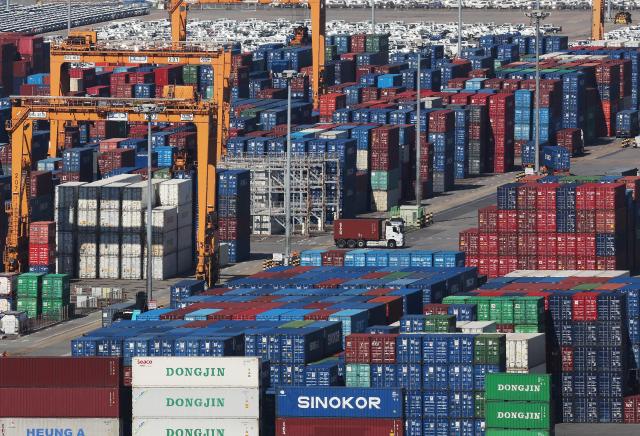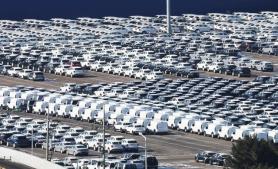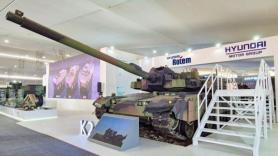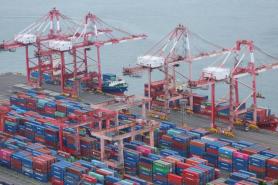
SEOUL, November 02 (AJP) - South Korea’s exports extended their growth streak for the fifth consecutive month, rising 3.5 percent on year to $59.57 billion in October – the highest ever for the month – despite fewer working days from the Chuseok holiday thanks to record chip and robust vessel shipments.
According to data released Saturday by the Ministry of Trade, Industry and Resources, the trade account posted a $6.06 billion surplus as imports fell 1.5 percent to $53.52 billion. The cumulative trade balance for January through October stood at $56.43 billion, already surpassing the total surplus recorded for all of last year.
Out of the country’s 15 main export categories, semiconductors, ships, petroleum products and computers posted gains.
Semiconductor exports jumped 25.4 percent to $15.73 billion, the largest figure ever recorded for October, buoyed by robust demand for high-capacity memory chips such as HBM and DDR5 and strengthening chip prices from shortages in legacy chips. Ship exports soared 131.2 percent to $4.69 billion, led by offshore plant deliveries, extending their growth streak to eight months.
Petroleum product exports rose 12.7 percent to $3.83 billion on higher shipment volumes. By contrast, exports of automobiles fell 10.5 percent, auto parts dropped 18.9 percent and steel exports declined 21.5 percent, largely due to higher tariffs in the main U.S. market.
By region, exports to Latin America and the Commonwealth of Independent States (CIS) showed the strongest gains.
Exports to Latin America surged 99 percent to $4.71 billion, hitting an all-time high on large-scale offshore plant sales. Shipments to the CIS increased 34.4 percent to $1.34 billion, boosted by strong car demand.
Meanwhile, exports to the United States tumbled 16.2 percent to $8.71 billion amid weak sales of cars and steel affected by tariffs. Exports to China slipped 5.1 percent to $11.55 billion, though they remained above the $11-billion mark for a second consecutive month.
Industry Minister Kim Jeong-kwan expressed optimism for a turnaround in U.S. trade as a result of the Korea–U.S. trade deal reached during APEC week, which promised nondiscriminatory tariff rates for car, chip and pharmaceutical exports to the U.S.
“Despite fewer working days during the Chuseok holidays, semiconductors and ships continued to lead our export growth,” Kim said, adding that “the steady five-month growth streak demonstrates a clear recovery in South Korea’s export performance.”
During their summit on the sidelines of the Asia-Pacific Economic Cooperation (APEC) meeting held in Gyeongju, President Lee Jae Myung and U.S. President Donald Trump agreed to allocate $200 billion out of South Korea’s $350 billion investment package in the form of cash investment, with an annual cap set at $20 billion. As part of the deal, car tariffs will be lowered from 25 percent to 15 percent, equal to the duties applied to Japanese and European vehicles.
Copyright ⓒ Aju Press All rights reserved.



